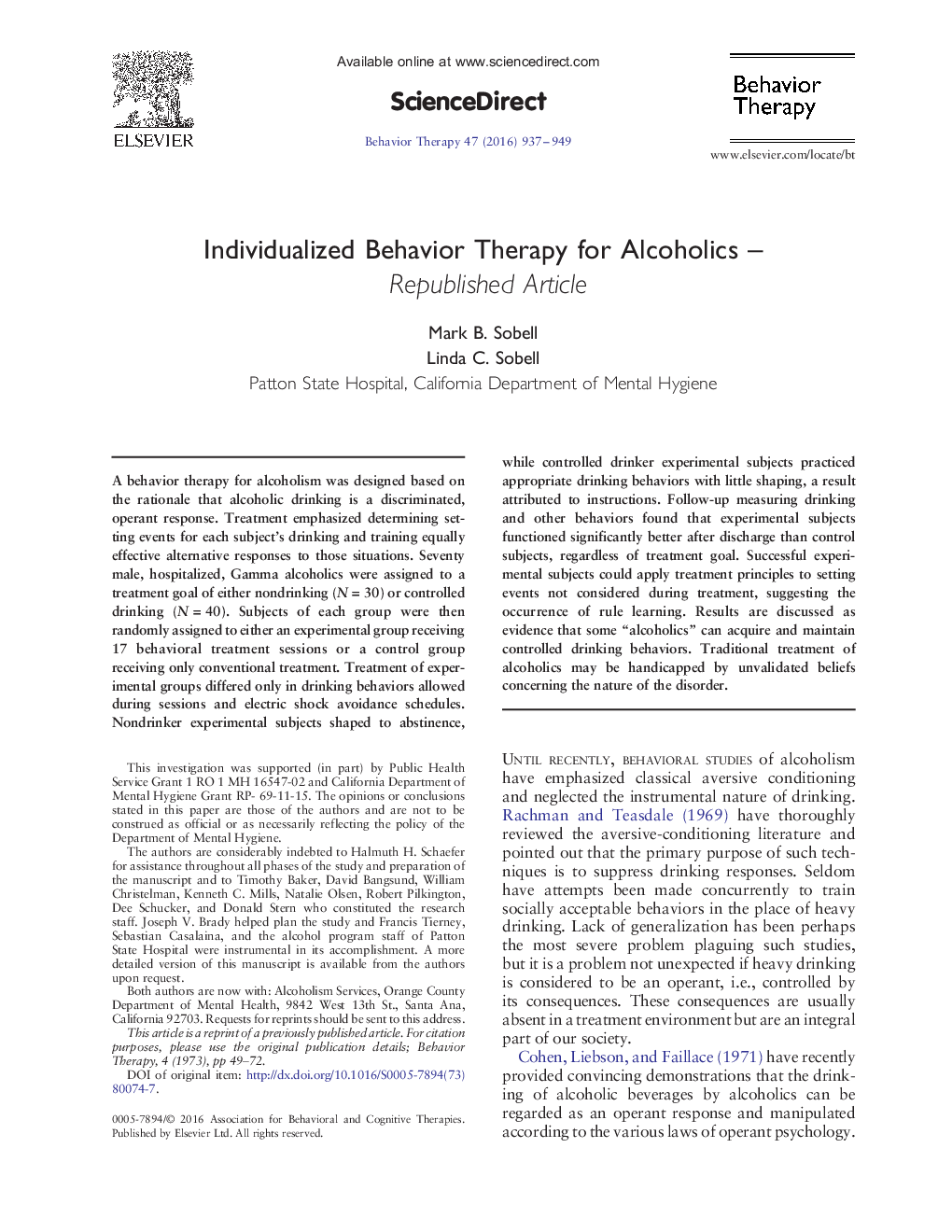| Article ID | Journal | Published Year | Pages | File Type |
|---|---|---|---|---|
| 5038008 | Behavior Therapy | 2016 | 13 Pages |
A behavior therapy for alcoholism was designed based on the rationale that alcoholic drinking is a discriminated, operant response. Treatment emphasized determining setting events for each subject's drinking and training equally effective alternative responses to those situations. Seventy male, hospitalized, Gamma alcoholics were assigned to a treatment goal of either nondrinking (NÂ =Â 30) or controlled drinking (NÂ =Â 40). Subjects of each group were then randomly assigned to either an experimental group receiving 17 behavioral treatment sessions or a control group receiving only conventional treatment. Treatment of experimental groups differed only in drinking behaviors allowed during sessions and electric shock avoidance schedules. Nondrinker experimental subjects shaped to abstinence, while controlled drinker experimental subjects practiced appropriate drinking behaviors with little shaping, a result attributed to instructions. Follow-up measuring drinking and other behaviors found that experimental subjects functioned significantly better after discharge than control subjects, regardless of treatment goal. Successful experimental subjects could apply treatment principles to setting events not considered during treatment, suggesting the occurrence of rule learning. Results are discussed as evidence that some “alcoholics” can acquire and maintain controlled drinking behaviors. Traditional treatment of alcoholics may be handicapped by unvalidated beliefs concerning the nature of the disorder.
